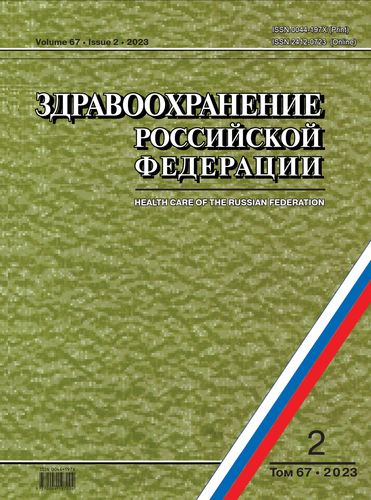Contact-tracing of the COVID-19 spreading using digital technologies with artificial intelligence (literary review)
- Authors: Daminov B.T.1, Ashirbaev S.P.1, Vikhrov I.P.1
-
Affiliations:
- Tashkent Pediatric Medical Institute
- Issue: Vol 67, No 2 (2023)
- Pages: 142-148
- Section: PREVENTION OF INFECTIOUS DISEASES
- Submitted: 25.10.2024
- URL: https://rjmseer.com/0044-197X/article/view/638020
- DOI: https://doi.org/10.47470/0044-197X-2023-67-2-142-148
- EDN: https://elibrary.ru/rpzgzr
- ID: 638020
Cite item
Full Text
Abstract
The emergence of COVID-19 almost coincided with the beginning of an active phase of the digitalization process in all areas, including the healthcare system. Moreover, COVID-19 unwittingly became the impetus that accelerated the adoption of digital technologies, and initiated new, often innovative solutions to combat both the virus and its devastating social and economic consequences.
The purpose of the study: the current study conducts a literature review of existing scientific reports in the field of digital contact-tracing COVID-19 using artificial intelligence (AI) technologies, to discuss issues related to the security of personal data when using official mobile applications, to draw conclusions and make recommendations in the field of effective and ethical management of digital contact-tracing as one of the main tools for preventing the spread of the pandemic.
Scientific reports contained in the scientific research databases of Ebsco Publishing and SpringerLink for the period March 2020 — April 2021 were analyzed.
Digital contact-tracing solutions have found their important place among other anti-epidemic measures in many countries around the world. However, the same solutions, but already using AI, are still gaining popularity. National governments in numerous developed and developing countries understand the importance of national contact-tracing systems, which in turn has introduced such approaches in national pandemic response strategies.
Conclusion. Digital contact-tracing technologies using AI can be an effective tool in the fight against COVID-19 and similar pandemics. However, such digital systems are still at a preliminary stage of their development and implementation, and it will take time before the results will be visible. Very few of the considered examples and models of digital tracing solutions using AI technologies have operational maturity at this stage.
Contribution of the authors:
Daminov B.T. — research concept and design, writing of the text, editing;
Ashirbaev Sh.P. — collection and processing of material, writing of the text, statistical data processing;
Vikhrov I.P. — research concept and design, collection and processing of material, writing of the text, compilation of the list of literature, statistical data processing, editing.
All authors are responsible for the integrity of all parts of the manuscript and approval of the manuscript final version.
Acknowledgment. The study had no sponsorship.
Conflict of interest. The authors declare no conflict of interest.
Received: May 26, 2021
Accepted: October 10, 2021
Published: April 28, 2023
About the authors
Botir T. Daminov
Tashkent Pediatric Medical Institute
Author for correspondence.
Email: noemail@neicon.ru
ORCID iD: 0000-0002-9419-0831
Russian Federation
Sherzod P. Ashirbaev
Tashkent Pediatric Medical Institute
Email: noemail@neicon.ru
ORCID iD: 0000-0003-2491-5312
Russian Federation
Igor P. Vikhrov
Tashkent Pediatric Medical Institute
Email: igorvichrov@yandex.ru
ORCID iD: 0000-0002-4333-8533
Head of the E-Health Department, Innovation Center of the Tashkent Pediatric Medical Institute, Tashkent, 100140, Uzbekistan.
e-mail: igorvichrov@yandex.ru
Russian FederationReferences
- Ferretti L., Wymant C., Kendall M., Zhao L., Nurtay A., Abeler-Dörner L., et al. Quantifying SARS-CoV-2 transmission suggests epidemic control with digital contact tracing. Science. 2020; 368(6491): eabb6936. https://doi.org/10.1126/science.abb6936
- Hatamian M., Wairimu S., Momen N., Fritsch L. A privacy and security analysis of early-deployed COVID-19 contact tracing Android apps. Empir. Softw. Eng. 2021; 26(3): 36. https://doi.org/10.1007/s10664-020-09934-4
- Amit M., Kimhi H., Bader T., Chen J., Glassberg E., Benov A. Mass-surveillance technologies to fight coronavirus spread: the case of Israel. Nat. Med. 2020; 26(8): 1167–9. https://doi.org/10.1038/s41591-020-0927-z
- Park J., Cho S., Lee J., Lee I., Park W., Jeong S., et al. Development and utilization of a rapid and accurate epidemic investigation support system for COVID-19. Osong. Public Health Res. Perspect. 2020; 11(3): 118–27. https://doi.org/10.24171/j.phrp.2020.11.3.06
- Lai S.H.S., Tang C.Q.Y., Kurup A., Thevendran G. The experience of contact tracing in Singapore in the control of COVID-19: highlighting the use of digital technology. Int. Orthop. 2021; 45(1): 65–9. https://doi.org/10.1007/s00264-020-04646-2
- Lalmuanawma S., Hussain J., Chhakchhuak L. Applications of machine learning and artificial intelligence for Covid-19 (SARS-CoV-2) pandemic: A review. Chaos Solitons Fractals. 2020; 139: 110059. https://doi.org/10.1016/j.chaos.2020.110059
- Bansal A., Padappayil R.P., Garg C., Singal A., Gupta M., Klein A. Utility of Artificial Intelligence Amidst the COVID 19 Pandemic: A Review. J. Med. Syst. 2020; 44(9): 156. https://doi.org/10.1007/s10916-020-01617-3
- Martinez-Martin N., Luo Z., Kaushal A., Adeli E., Haque A., Kelly S.S., et al. Ethical issues in using ambient intelligence in health-care settings. Lancet Digit. Health. 2021; 3(2): e115–e123. https://doi.org/10.1016/s2589-7500(20)30275-2
- Dignum V. Responsible artificial intelligence: how to develop and use AI in a responsible way. Springer Nature; 2019.
- Piccialli F., di Cola V.S., Giampaolo F., Cuomo S. The Role of Artificial Intelligence in Fighting the COVID-19 Pandemic. Inf. Syst. Front. 2021; 23(6): 1467–97. https://doi.org/10.1007/s10796-021-10131-x
- El-Haddadeh R., Fadlalla A., Hindi N.M. is there a place for responsible artificial intelligence in pandemics? A tale of two countries. Inf. Syst. Front. 2021; 1–17. https://doi.org/10.1007/s10796-021-10140-w
- D’Angelo G., Palmieri F. Enhancing COVID-19 tracking apps with human activity recognition using a deep convolutional neural network and HAR-images. Neural. Comput. Appl. 2021: 1–17. https://doi.org/10.1007/s00521-021-05913-y
- Meirom E.A., Maron H., Mannor S., Chechik G. How to stop epidemics: controlling graph dynamics with reinforcement learning and graph neural networks; 2020.
- Musikanski L., Phillips R., Rogers P. Well-Being data gathering during COVID-19: Exploring the feasibility of a contact tracing and community well-being safeguarding framework. Int. J. Community Wellbeing. 2021; 4(3): 353–61. https://doi.org/10.1007/s42413-020-00108-0
- Agbehadji I.E., Awuzie B.O., Ngowi A.B., Millham R.C. Review of big data analytics, artificial intelligence and nature-inspired computing models towards accurate detection of COVID-19 pandemic cases and contact tracing. Int. J. Environ. Res. Public Health. 2020; 17(15): 5330. https://doi.org/10.3390/ijerph17155330
Supplementary files










